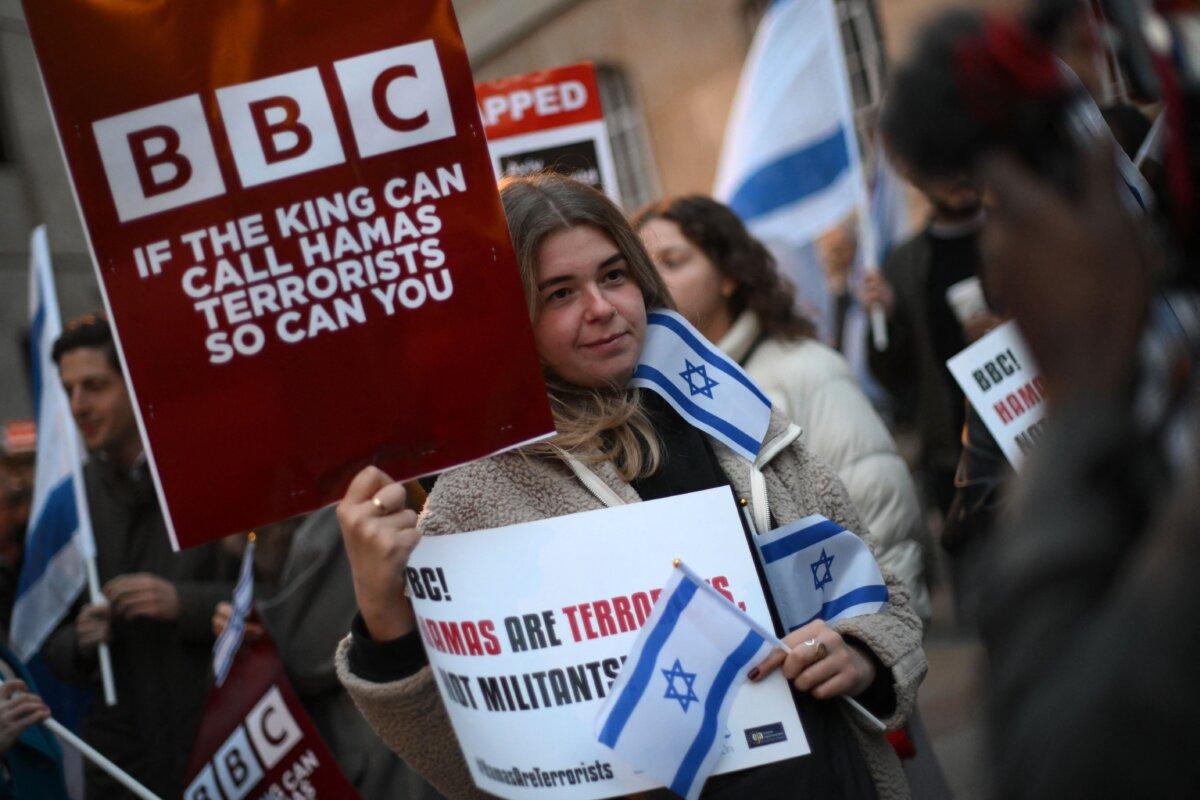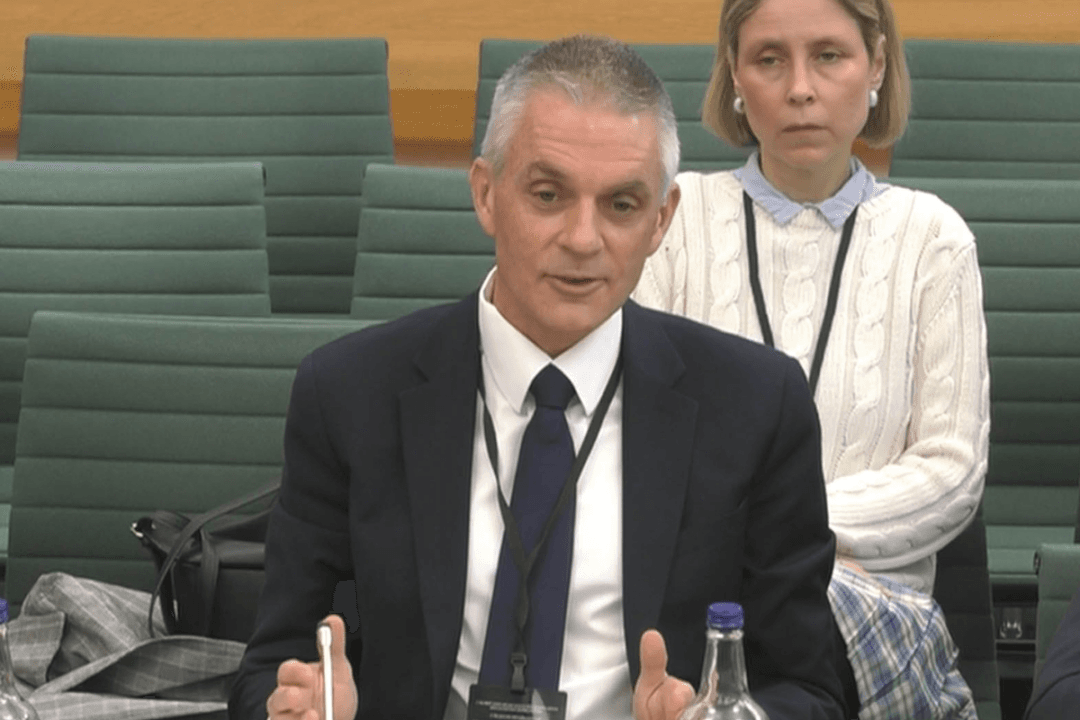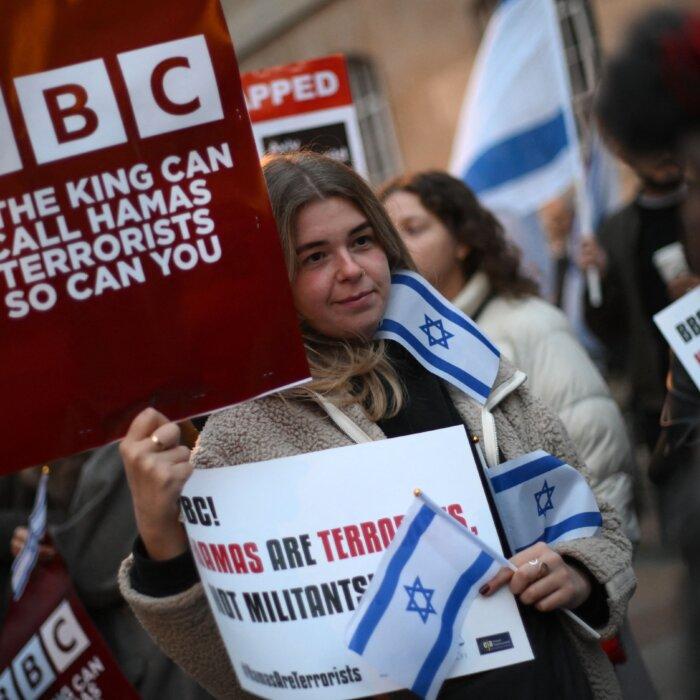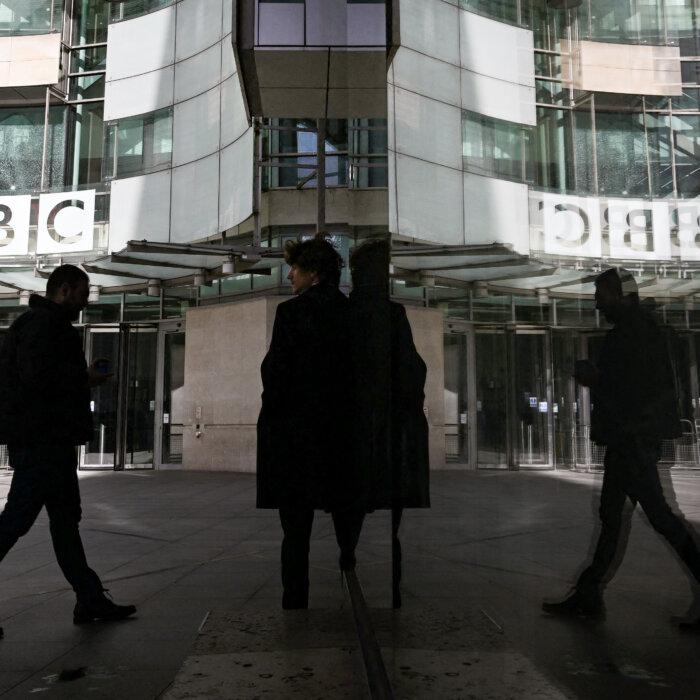The director-general of the BBC has defended the corporation’s decision to uphold an impartiality complaint against a Radio 4 presenter for saying “trans women” are male.
Tim Davie made the remarks during a meeting of the Culture, Media, and Sport Committee in the House of Commons on Wednesday, where he said that Justin Webb using the phrase “trans women, in other words, males,” was a breach of the BBC’s editorial guidelines.
Conservative MP Damian Green put it to the BBC director-general that the Executive Complaints Unit (ECU) upholding the complaint had signalled to people that “this is a clear sign of institutional bias at the BBC.”
Mr. Davie replied, “I don’t think we suffer institutional bias in this area.”
The BBC chief said that while the topic of gender identity was “an area of controversy,” there are no “no-go areas” at the corporation.
“We don’t have no go areas in the BBC. To do that, we do demand of our journalists to keep within editorial guidelines. The editorial guidelines are clear in this area,” he said.
On the matter of gender, journalists should describe “a person born male who lives as a female” as a “transgender woman,” using the pronoun “she” and vice-versa.
‘Be Kind and Caring’
Mr. Davie said that Mr. Webb’s comment “was a breach.”“It’s quite a small thing. But it registered. It was just a sentence that wasn’t quite right. [...] I think that’s what it was, no more, no less. And to act on that quickly is the right thing,” he said in support of the ECU’s decision.
“The other thing is, we have to be kind and caring in this, and listen to people. And be nice,” he said.
Also present at the committee was David Jordan, the director of editorial policy and standards at the BBC, who said, “In the case of Justin Webb, it’s unfortunate that he didn’t define his terms a bit more.”
Mr. Jordan said that had the BBC Radio 4 presenter said “biological male” or “born male,” then “it wouldn’t have been a problem.”
“It’s a very sensitive subject for trans women to be called male, rather than female. And that’s part of the debate. And we need to steer very carefully through that difficult debate, make sure that we are not offending either side of it or not using terms that are clearly offensive to outsiders or seem to them to be taking sides in it,” Mr. Jordan said.
“But just asserting that all trans women are male is not what the BBC style is on this,” he continued.
Mr. Davie also dismissed reports he had been “deluged” with complaints over the issue, claiming: “This has been whipped up, as well, around us in a way that’s deeply, deeply damaging to civilised debate about these topics. Having said that, there are also people who care very deeply on either side of this debate, and we need to hear from them.”

‘Unacceptable’ Posts on Israel Shared by BBC Staff
In the wide-ranging committee session, Mr. Davie also faced questions on social media posts about Israel being shared by some BBC journalists, which Mr. Green called “essentially pro-Hamas.”Mr. Davie said the remarks were “unacceptable.”
He told the committee: “Some of those tweets that we’ve seen are unacceptable, and we have taken action. And we will continue to take action.
“Now, whether I can commit to you it will never happen again, of course not. But we are robust [...] We’re acting fairly and judiciously.”
“Wherever we see something that’s not within our guidelines. We are taking action,” he said.
Outlining what kind of measures the broadcaster could take, Mr. Davie said the BBC would “look at the appropriate sanction that will not always be leaving the BBC.”
Israel–Hamas War
In the immediate aftermath of the Oct. 7 terror attack against Israel, the BBC received criticism for refusing to call Hamas—a proscribed terror group in the UK—“terrorists,” opting instead to call them “militants.”The broadcaster’s style guide says that while the term “terrorist” is not banned, it can be “a barrier rather than an aid to understanding.”
The decision prompted criticism from Jewish groups as well as members of the Cabinet, including Defence Secretary Grant Shapps and Culture Secretary Lucy Frazer.
“Instead, the BBC describes the group as a proscribed terrorist organisation by the UK government and others, or simply as Hamas,” the board said.







